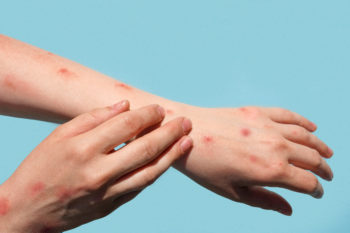
With cases of the monkeypox virus (MPV) being reported across the country, many parents have questions about how to keep their kids as safe as possible.
The MPV infection can cause an illness that includes rashes and other symptoms like fever, chills, headache and exhaustion, among others, and is passed by close, prolonged skin-to-skin contact. Pediatric cases are among a very small number of cases in the country and in general, children are at very low risk of getting monkeypox in their normal daily interactions, including at school.
Dr. Sara Vora, an infectious disease expert at Seattle Children’s, shares what parents should know about MPV and the measures they can take to reduce the risk of infection in children.
Practice proper hygiene
Parents and caregivers should encourage kids to practice proper hygiene habits and wash their hands frequently.
“This virus, unlike COVID-19 which we have been dealing with for the past couple years, is acquired by close, prolonged skin-to-skin contact,” Dr. Vora explained. “Try to limit the exposure of the adults and teenagers in the household to high-risk activities that might result in them bringing MPV indoors, increasing the risk of monkeypox for children in the house.”
She notes that it’s important to be extra attentive in certain school settings or close-contact programs.
“For example, in a college dorm environment where there may be sharing of items like towels and utensils, or in a preschool or daycare setting where there is more likely exposure to saliva and closer contact. With sports, activities like wrestling may involve skin-to-skin contact.”
Check in with your child’s other caregivers, teachers and activity leaders to be sure regular cleaning routines are in place, including wiping down surfaces and laundering. This is important for preventing many contagious illnesses.
Keep calm
She adds that with the new school year quickly approaching, many hospitals have seen an increase in phone calls about rashes and possible cases over the last couple of weeks but emphasizes that parents need not panic.
“Pediatric cases are very rare so far and going to school is a pretty casual encounter that does not pose a significant increased risk of infection,” Dr. Vora said. “The highest risk is from someone in the household having monkeypox.”
Seek medical guidance
If a child has a rash that a parent is concerned about, they should call their primary care doctor to seek healthcare advice and may potentially get the rash tested. In addition, any lesions should be covered if possible until they know what it is, and the child should be kept safely isolated from others.
If a parent is referred to the emergency room, the emergency room should be notified first and parents should wait in their vehicle so the child can be properly escorted and kept isolated from others in the waiting room area.
“In summary, try to limit exposure of adults in the household to high-risk activities that might increase the risk to monkeypox for your children,” Dr. Vora said. “Keeping yourself protected will protect your kids.”

